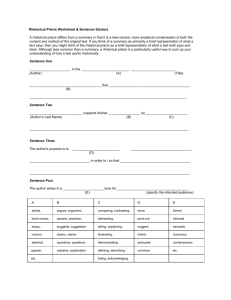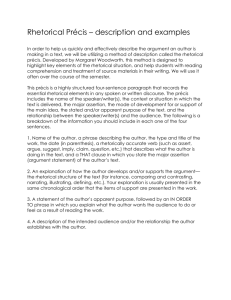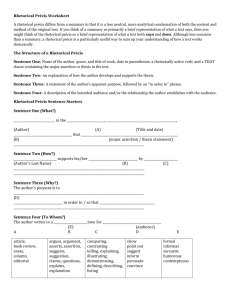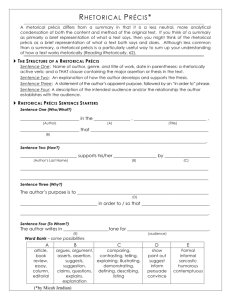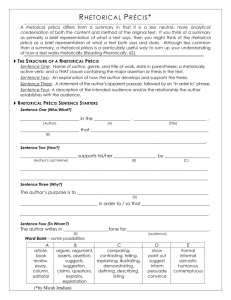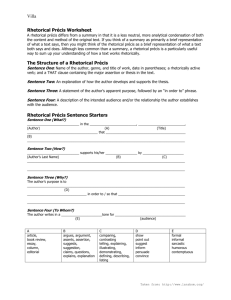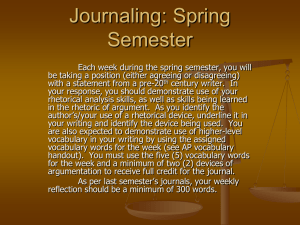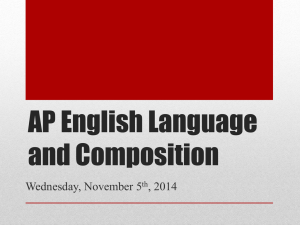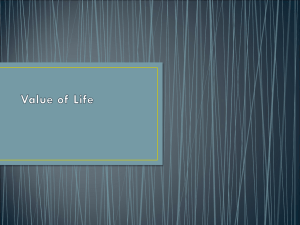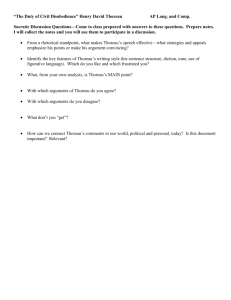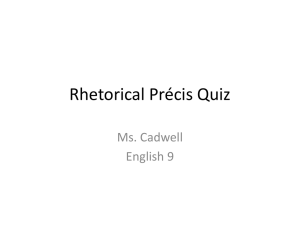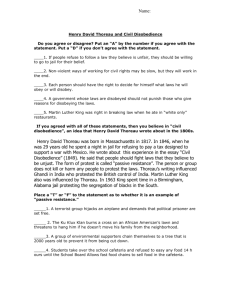The Rhetorical Précis Civil Disobedience
advertisement
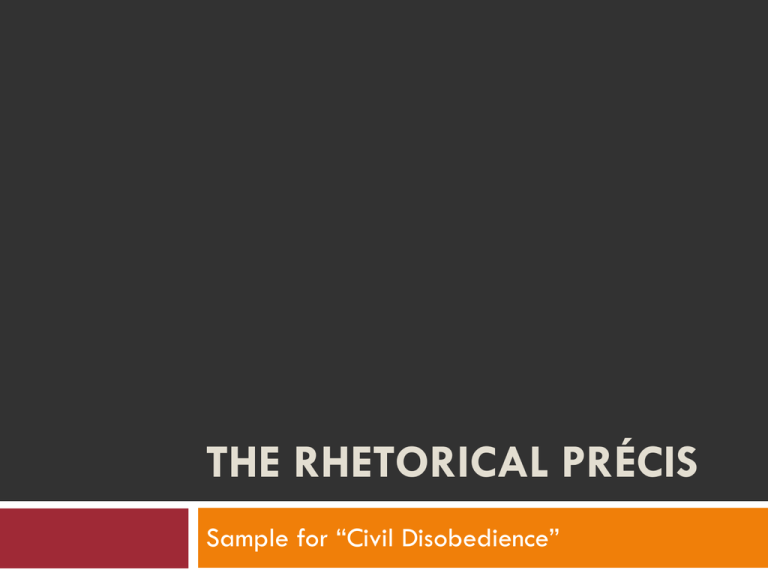
THE RHETORICAL PRÉCIS Sample for “Civil Disobedience” The Rhetorical Précis In 1988, Margret Woodworth reported on a reading/writing method that demonstrated significant success with her students at various levels, particularly in their reading comprehension and preparation for using source materials in their own academic writing. That method, which Woodworth calls “the rhetorical précis,” will be used to complete this Syndicated Columnist Assignment. In a four sentence format, the rhetorical précis offers a short account of an article, essay, or resource that does more than summarize its content. Sentence 1: Name of author,[optional: a phrase describing the author], the genre and title of the work, date in parentheses, a rhetorically accurate verb (such as “asserts,” “argues,” “suggests,” “implies,” “claims,” etc.) and a THAT clause containing the major assertion (thesis statement) of the article or essay. Henry David Thoreau, an American transcendentalist, in his essay “Civil Disobedience” [1849] asserts the need to prioritize one's conscience over the dictates of laws. Sentence 2: An explanation of how the author develops and/or supports the thesis. Thoreau illustrates this belief by criticizing American social institutions and policies, most prominently slavery and the Mexican-American War. Sentence 3: A Statement of the author’s apparent purpose, followed by an “in order” phrase indicating the change the author wants to effect in the audience. His purpose is to make readers aware of the notion that government rarely proves itself useful and that it derives its power from the majority because they are the strongest group, not because they hold the most legitimate viewpoint in order to encourage the reader to reflect on what s/her believes in strongly enough to take some sort of nonviolent stance. Sentence 4: A description of the intended audience and the relationship the author establishes with the audience. He establishes an formal relationship with his audience of educated adults who are interested in the how they might “wash their hands” of government when it’s laws are ideologically out of line with one’s strongest beliefs. Final Sample Henry David Thoreau, an American transcendentalist, in his essay “Civil Disobedience” [1849] asserts the need to prioritize one's conscience over the dictates of laws. Thoreau illustrates this belief by criticizing American social institutions and policies, most prominently slavery and the Mexican-American War. His purpose is to make readers aware of the notion that government rarely proves itself useful and that it derives its power from the majority because they are the strongest group, not because they hold the most legitimate viewpoint in order to encourage the reader to reflect on what s/her believes in strongly enough to take some sort of nonviolent stance. He establishes an formal relationship with his audience of educated adults who are interested in the how they might “wash their hands” of government when it’s laws are ideologically out of line with one’s strongest beliefs.
